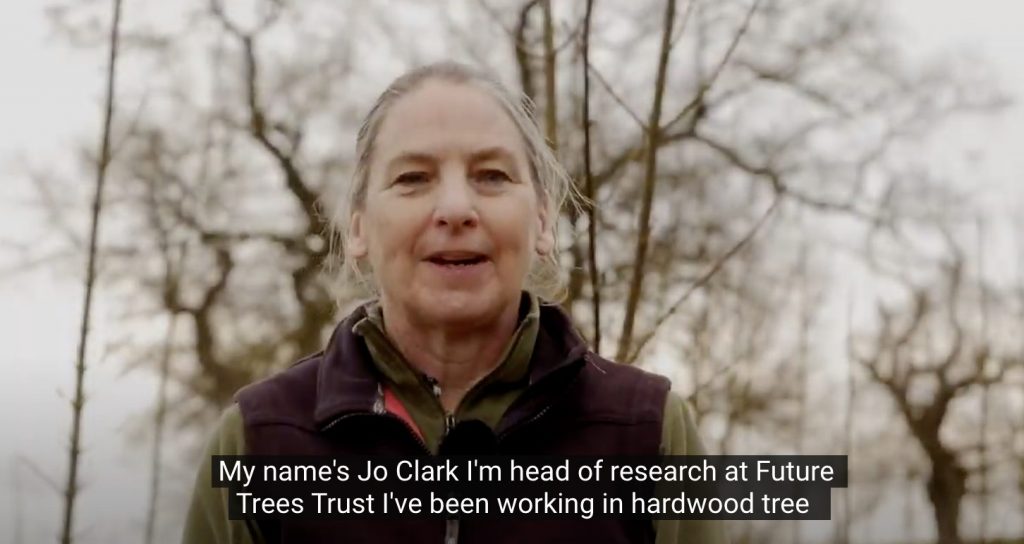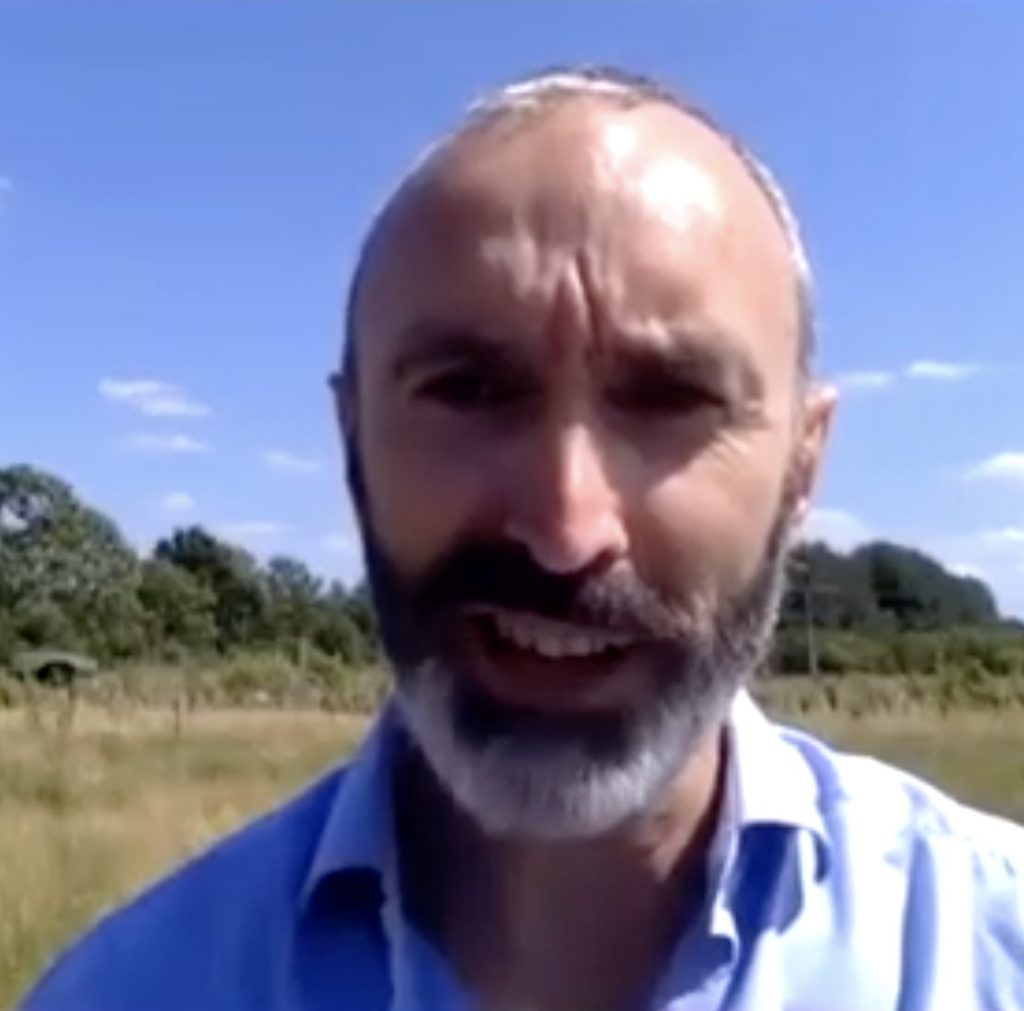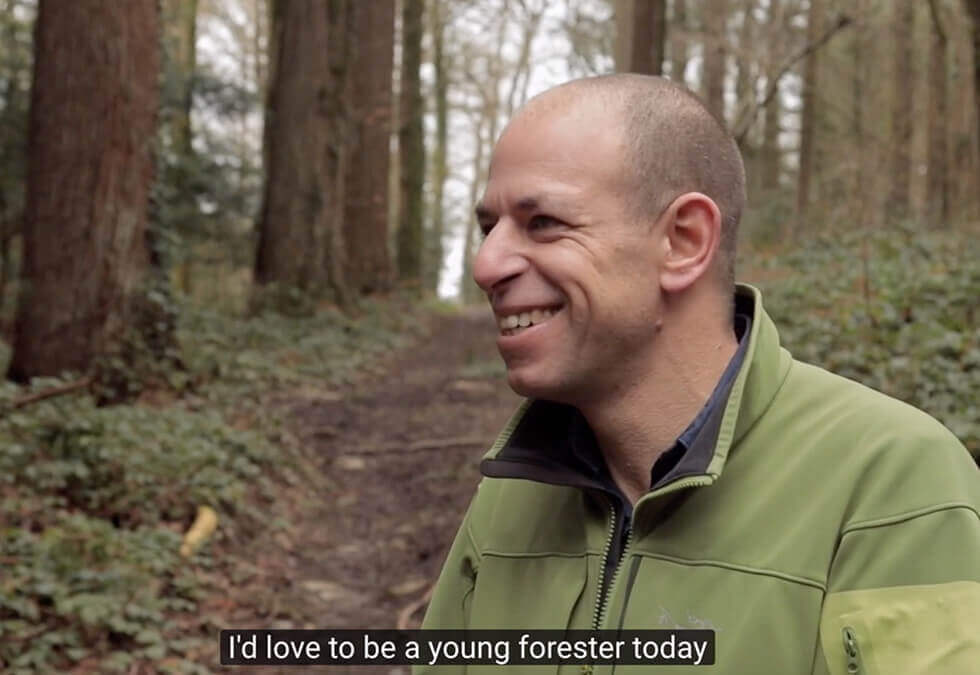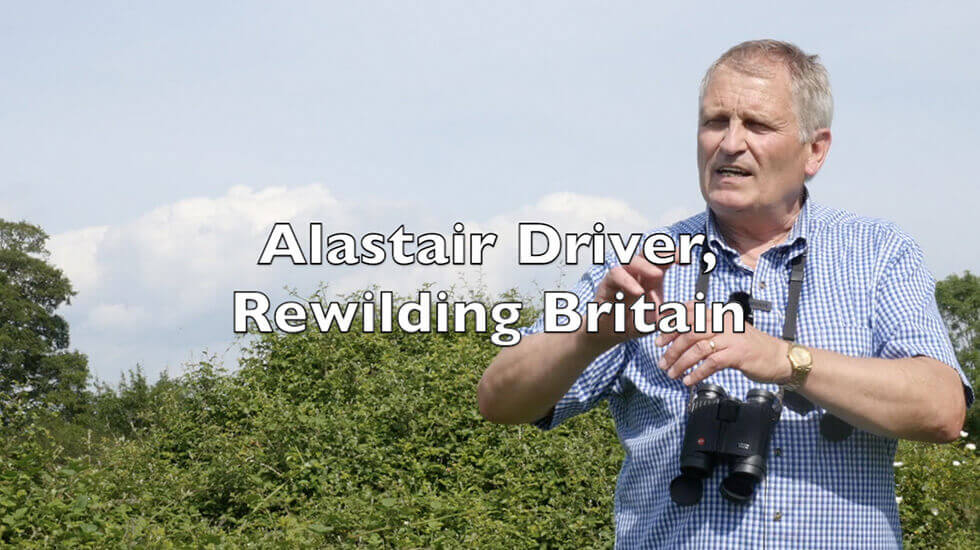November 4, 2021
“Value productive woodlands in creating good quality timber”
‘Wood for the Trees,’ is a series of short films about Britain’s forests. We asked experts about their hopes and fears for woods and woodlands, and for one suggestion to help them grow. During COP26 we’re sharing these suggestions.
Dr Jo Clark is Head of Research at Future Trees Trust, and she spoke with us about her work in part 8 of the series.

“I’ve been working in hardwood tree improvement for nearly 20 years now,” she said. “The main aim of the Future Trees Trust is to work with commercially important timber species. The aim of a breeding program is so that we can produce trees for planting that are of higher quality than normal planting stock, and this means that it’s quicker for these trees to get established. That means our trees can grow a little bit faster, it means that the rotation can be reduced, and these trees with their longer and straighter lengths of timber will be used in bigger building projects rather than planting lower quality stock which often ends up as firewood.”
That’s important in terms of locking away carbon for the long term. “If you can grow quality timber that gets turned into quality products, that carbon in those trees is locked up for a very, very long time and this is so important today when we’re trying to hit our net carbon targets.”
“When people are planting trees I think it’s really important that they consider what they’re planting and where it’s come from. It’s not just a matter of buying trees and popping them in the ground, it’s really important to ask your supplier what region of provenance you’re getting your material from. Thinking to the future, we know the climate is warming so we have to ask ourselves how are the trees we’re planting today going to cope with those warming environments?”
“Where you’re trying to grow trees for the future, for timber,” said Dr Clark, “think about what you’re planting and where it’s coming from. In other European countries where they’re planting trees for timber and there is improved material available they have to plant that by law and I think my one policy suggestion would be that this should be the same in the UK and that where we have qualified or tested material available there should be a requirement to use it.
“And there is qualified material available already for sycamore, for birch, for cherry, and oak is coming, and chestnut is coming. We have these orchards planted, it’s just a few more years to wait until they start producing seed.”
Watch ‘A better future for our woodlands: 12 ideas to help Britain’s forests grow’
Watch the full interview with Dr Clark in part 8 of wood for the trees: Growing improved trees for timber
Find out more about the Future Trees Trust: https://www.futuretrees.org/12-policy-ideas-to-help-future-forests-grow/
For more information and to watch the whole series, visit woodforthetrees.uk
See the next suggestion:
5. Grown in Britain policy for all timber used in public buildings






